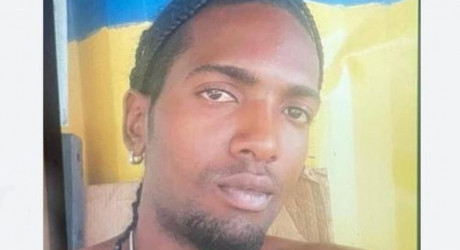Advertisement
The path to end AIDS in Jamaica is clear, regardless of the challenges
6:23 pm, Fri July 14, 2023
Dr. Richard Amenyah
The global AIDS report for 2023 has just been published and it recognizes the importance of political leadership as a game changer for ending AIDS as a public health threat by 2030. Jamaica has been at the forefront in the fight against HIV for years in the Caribbean and has seen progress in the reduction of new infections by 17 per cent between 2010 and 2022. However, AIDS deaths have increased gradually, year on year, since 2017.
Jamaica has an estimated 30,000 people living with HIV which is equivalent to 9 per cent of the HIV population in the Caribbean region. The national treatment cascade shows that about 91 per cent of people living with HIV know their status; but only 14,560 (or 49 per cent) of people living with HIV are on antiretroviral treatment. Sadly, only 38 per cent of all people living with HIV are virally suppressed. Viral suppression rates increase with age and children under 10 years are worse off, regardless of their sex. More females than males are accessing HIV treatment services. Therefore, a lot of effort is needed to have the 15,000 people not yet on treatment identified and linked to care and treatment. This is especially critical for our men and boys and key populations such as gay and other men who have sex with men and transgender persons.
Pervasive stigma and discrimination have been identified as major barriers to accessing HIV-related services in the country.
The Jamaican Network of Seropositives reports from their latest Stigma Index 2.0 survey that over half (53 per cent) of people living with HIV experience enacted or self-stigma which accentuates denial of their HIV status and could disempower them from accessing treatment services. Furthermore, stigma is experienced by a third of people living with HIV at the community level and about 10 per cent experience HIV-related stigma from health care personnel.
Key populations groups and civil society organisations have complained about how existing punitive laws contribute to the challenges some groups face in accessing available HIV prevention and treatment services. Civil society has called for legal and policy reforms and the passage of anti-discrimination legislation which protects all Jamaican, regardless of their health status, sexual orientation, or gender identity.
However, despite these challenges, the Government of Jamaica has provided strong leadership for the HIV response and has leveraged the strengths of civil society and the private sector to expand HIV services in support of the public sector HIV response. The government is discussing with its multisectoral partners the need to integrate HIV programmes into the primary health care system for sustainability and improved health at the community level. The integration of HIV programming with primary health care offers a great opportunity and hope for improved health and wellbeing. However, for this policy shift to be successful, the integration must prioritise people-centered differentiated service delivery and community-based services, and healthcare workers must be trained and supported to deliver gender-sensitive and rights-based services.
The Ministry of Health and Wellness is also piloting social contracting and implementing public-private initiatives to deliver high quality HIV-related services. These initiatives clearly demonstrate the government's commitment to make the HIV response inclusive, multi-sectoral and sustainable toward improved health outcomes. The ministry and the National Family Planning Board (NFPB) have collaborated with civil society, the network of people living with HIV to work together via the Global Partnership to Eliminate HIV-related Stigma & Discrimination. This joint effort helps to identify the inequality barriers and how to effectively address them based on the available data. The recent launch by Government of the “HIV Champions for change” to fight stigma and discrimination is a demonstration of its commitment to eliminate societal stigma in Jamaica. Similarly, Government of Jamaica has been assessed for possible validation for the elimination of mother to child transmission of HIV. These are all signals that Jamaica is on the right path to ending AIDS as a public health threat—even if the pace needs to be turbo-charged as Jamaicans are known for.
The Government must be congratulated for continuously securing HIV commodities for the treatment of its citizens from domestic resources. This is a clear departure from the situation in sub–Saharan Africa where most countries are dependent on The Global Fund and PEPFAR for their treatment programmes. The Government is encouraged to continue to provide exemplary political leadership since it ensures efficiency and effectiveness as well as long term sustainability of the HIV response. With sustained investment to eliminate inequality and inequity gaps to reduce HIV incidence and AIDS mortality, Jamaica stands to gain high economic and social returns on investments by maintain its human capital and shielding its people against poverty and food insecurity, enabling them to financially support the education of their children, and contribute to a further reduction in deaths in children and maternal mortality.
Dr. Richard Amenyah is a medical doctor from Ghana and public health specialist. He is the director for the UNAIDS multi-country office in the Caribbean. You can reach him on Twitter at @RichardAmenyah or @UNAIDSCaribbean and jamaica@unaids.org
comments powered by Disqus
More Stories
Advertisement
Most Popular

St. John's Primary mourns death of 9-y-o...
1:22 pm, Mon May 12, 2025
1:22 pm, Mon May 12, 2025

Police release more details on death of...
5:57 pm, Mon May 12, 2025
5:57 pm, Mon May 12, 2025

Man seen assaulting nurse in viral video...
1:25 pm, Fri May 16, 2025
1:25 pm, Fri May 16, 2025
Advertisement








 All feeds
All feeds







